Trainees report:Kanazawa Training Program:October 8, 2019
Miguel Ángel Echeverría Tager
(2019/10/09)
The workshop began today for the seven trainees coming from Guatemala and Honduras. All the participants had today the opportunity to present the situation and the problems that each of the communities and institutions they represent regarding the development of the Tikal National Park Corridor. A Q&A section followed each presentation and quickly turned into a discussion where all the participants exposed their points of view on each other´s situation.
Ms. Ingrid Francisca Morales Jiménez took the first turn and explained the actual situation of the Community of Ixlú, the community she represents. She expounded on the archaeological, natural, cultural and even gastronomical patrimony that her community possesses and is most often ignored by local authorities and rarely advertised to tourists. Following her presentation and the Q&A section, the discussion followed the objective of trying to establish a strategy to promote a particular product that is unique to this community and could be commercialized and advertised as a touristic attraction.
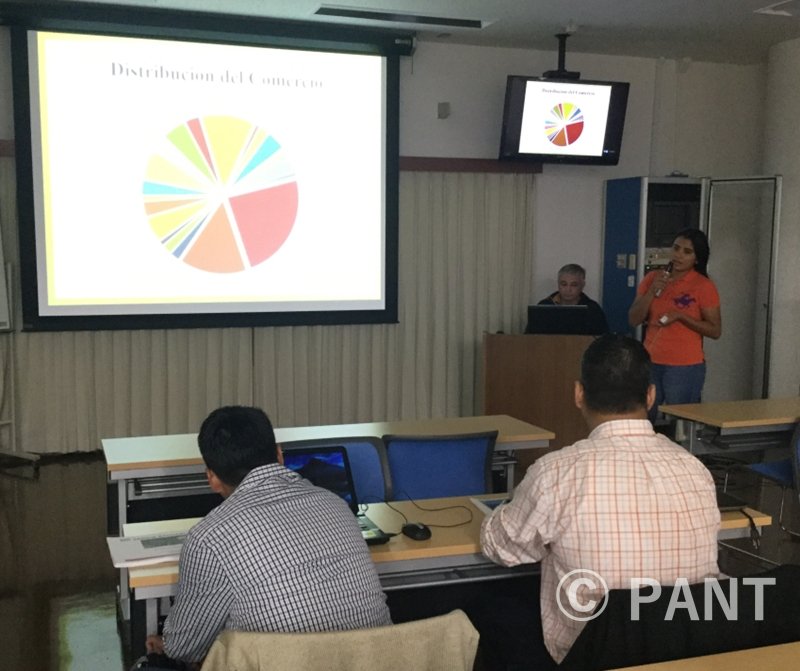
Ms. Ingrid Morales during her presentation
Mr. José Francisco Cano Ozaeta took the second turn. Representing INGUAT (the Guatemalan Institute of Tourism), the governmental institution that enforces the politics of tourism, he presented the problems and the issues arising around touristic security, his area of expertise. He focused his presentation on the need of a joint effort between the various institutions involved to face together the challenge of developing a local economy based on safe tourism.
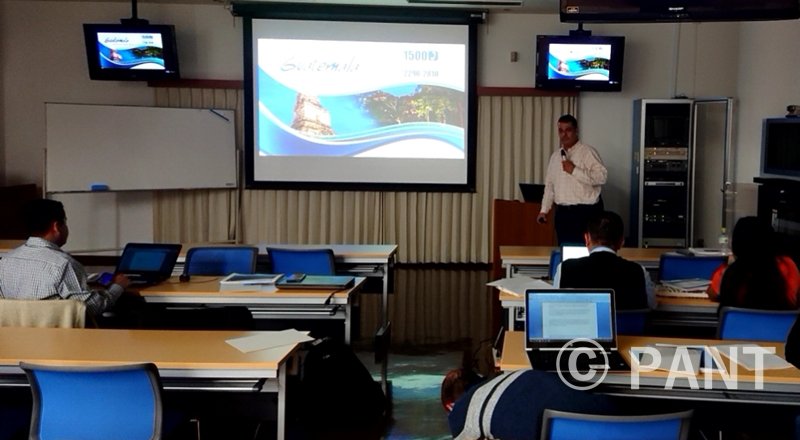
Mr. Francisco Cano during his presentation
The presentations continued in the afternoon with Mr. Carlos Abigail González Gonzáles representing the INTECAP (Institute of Technical Training and Productivity) and expounding on the history of this institution and the problems that offering a technical education in a rural area pose. He addressed the issues of the lack of trained personnel and the lack of necessary equipment just as the lack of a true interest in education from the inhabitants.
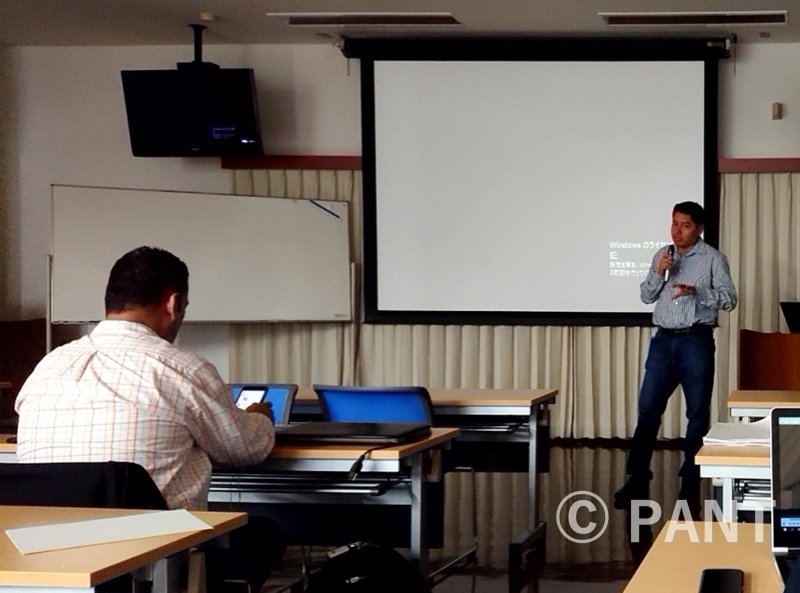
Mr. Carlos González during his presentation
Ms. Cristel Michell Pineda Orellana followed with a presentation on her work at Tikal National Park and the preservation of its natural patrimony. She presented the work done by the park to monitor water sources, air contamination, and the population of various protected species. Her presentation tried to raise awareness on the attendants of the challenges that preserving natural patrimony will pose on the future development of tourism.
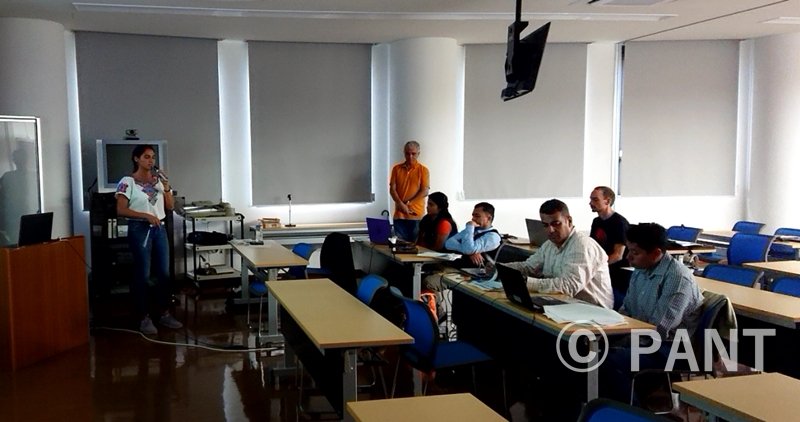
Ms. Cristel Pineda during her presentation
Mr. Cristian Napoleón Aguilar Nieto, the only representative of Honduras, took the last turn and closed the day´s session with a presentation of the natural, cultural and archaeological patrimony protected by the IHAH (Honduran Institute of Anthropology and History) and the projects of conservation and social development that the institute has implemented with the aid of foreign institutions. The IHAH has worked with JICA and with the University of Kanazawa in projects around Copan, an archaeological site in the list of UNESCO´s World Heritage Sites.
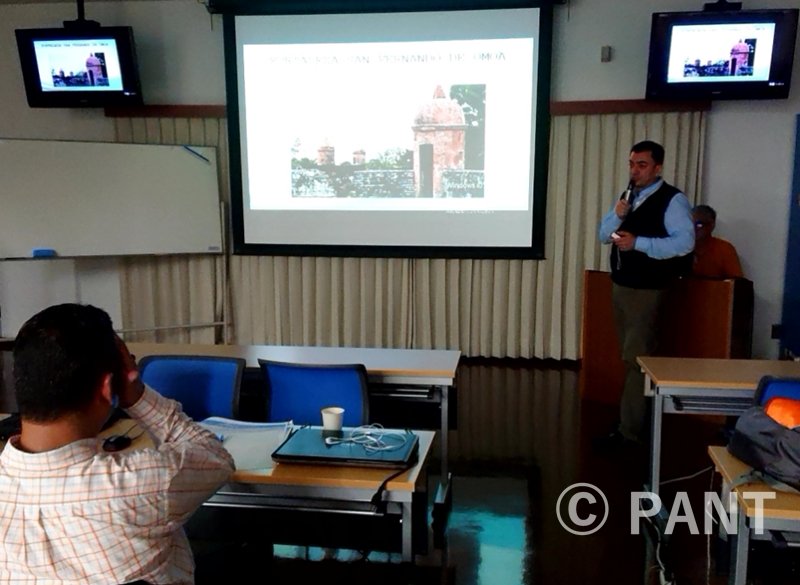
Mr. Cristian Aguilar during his presentation
